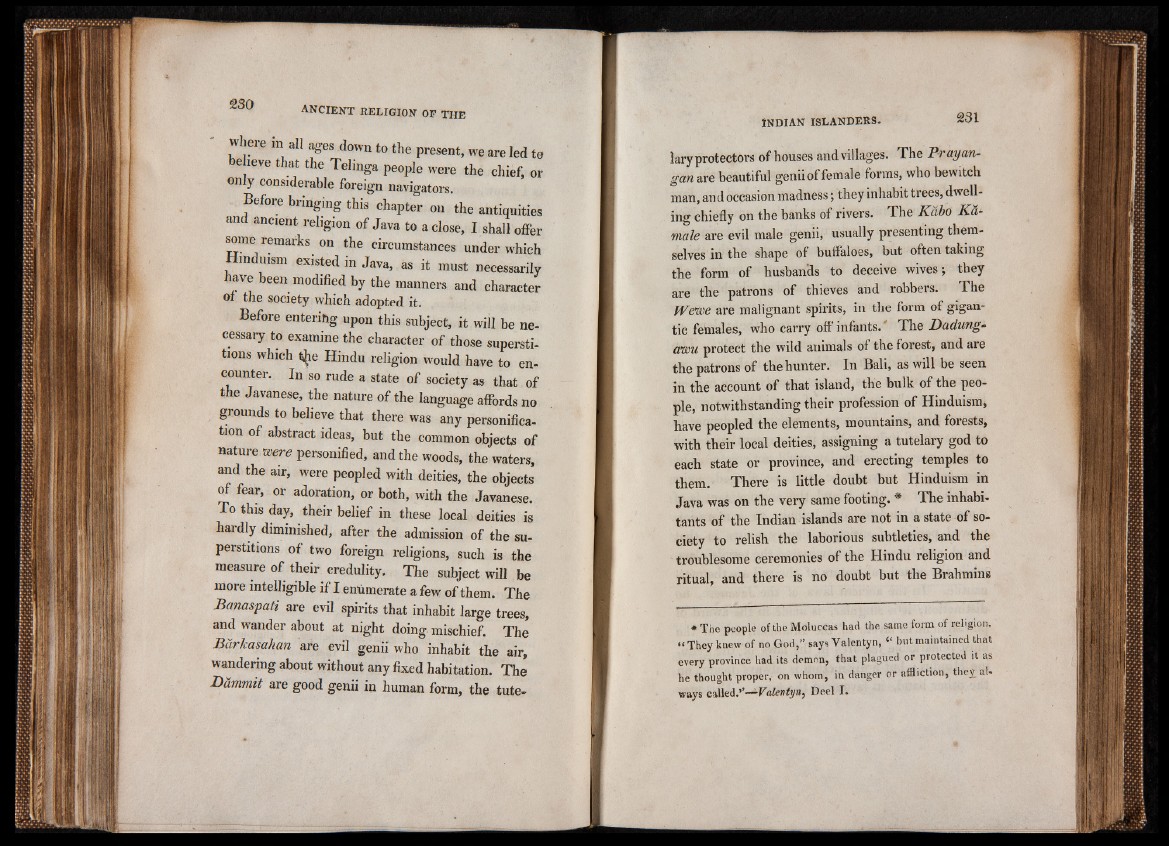
Where in all ages down to the present, we are led to
beheve that the Tellnga people were the chief, or
only considerable foreign navigators.
Before bringing this chapter on the antiquities
and ancient religion of Java to a close, I shall offer
some remarks on the circumstances under which
Hinduism existed in Java, as it must necessarily
have been modified by the manners and character
of the society which adopted it.
Before entering upon this subject, it will be necessary
to examine the character of those superstitions
which tsjie Hindu religion would have to encounter.
In so rude a state of society as that of
the Javanese, the nature of the language affords no
grounds to believe that there was any personification
of abstract ideas, but the common objects of
nature s personified, and the woods, the waters,
and the air, were peopled with deities, the objects
of fear, or adoration, or both, with the Javanese.
To this day, their belief in these local deities is
hardly diminished, after the admission of the superstitions
of two foreign religions, such is the
measure of their eredulity. The subject will be
more intelligible if I enumerate a few of them. The
Banaspati are evil spirits that inhabit large trees,
and wander about at night doing mischief. The
Barkasahan are evil genii who inhabit the air,
wandering about without any fixed habitation. The
Dammit are good genii in human form, the tutelary
protectors of houses and villages. The Prayan-
gan are beautiful genii of female forms, who bewitch
man, and occasion madness; they inhabit trees, dwelling
chiefly on the banks of rivers. The Kabo Ka*
male are evil male genii, usually presenting themselves
in the shape of buffaloes, but often taking
the form of husbands to deceive wives; they
are the patrons of thieves and robbers. The
Wewe are malignant spirits, in the form of gigantic
females, who carry off infants.' The Dadung-
awu protect the wild animals of the forest, and are
the patrons of the hunter. In Bali, as will be seen
in the account of that island, the bulk of the people,
notwithstanding their profession of Hinduism,
have peopled the elements, mountains, and forests,
with their local deities, assigning a tutelary god to
each state or province, and erecting temples to
them. There is little doubt but Hinduism in
Java was on the very same footing. * The inhabitants
of the Indian islands are not in a state of society
to relish the laborious subtleties, and the
troublesome ceremonies of the Hindu religion and
ritual, and there is no doubt but the Brahmins
* The people of the Moluccas had the same form of religion.
“ They knew of no God,” says Valentyn, “ but maintained that
every province had its demon, that plagued or protected it as
he thought proper, on whom, in danger or affliction, they always
called.’’—Fafeniy«, Deel f t